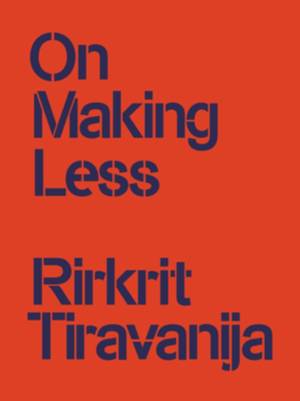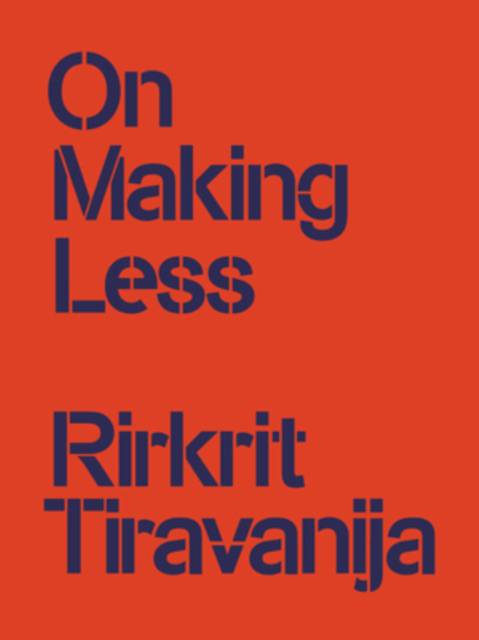
- Afhalen na 1 uur in een winkel met voorraad
- Gratis thuislevering in België vanaf € 30
- Ruim aanbod met 7 miljoen producten
- Afhalen na 1 uur in een winkel met voorraad
- Gratis thuislevering in België vanaf € 30
- Ruim aanbod met 7 miljoen producten
Zoeken
Omschrijving
Doing less may seem contradictory considering climate change, turbo-capitalism and political gridlock. Yet for Rirkrit Tiravanija, it is a crucial practice that has shaped him for many years and has rarely seemed as relevant as it does right now: using fewer resources; intervening less and observing more; looking less at results and more at the process. It can also mean collecting fewer objects in museums or accumulating fewer artworks in galleries and instead using these spaces for cooking, playing table tennis or spending the night. For Tiravanija as an artist, it can even mean deciding not to make art at all and instead renting a rice field to collectively test methods of sustainable energy production. Or it can mean simply waiting to see what happens. In this book, Rirkrit Tiravanija compiles various ideas and approaches to this method on 128 pages, including an essay from the 1970s about "Do-Nothing Farming" by Masanobu Fukuoka, a pioneer of today's organic farming. He also shares a fast recipe for a Negroni, a slow recipe for fish sauce and instructions for composting, and provides insights into his process-oriented work.
Specificaties
Betrokkenen
- Auteur(s):
- Uitgeverij:
Inhoud
- Aantal bladzijden:
- 128
- Taal:
- Engels
- Reeks:
Eigenschappen
- Productcode (EAN):
- 9783948546243
- Verschijningsdatum:
- 17/02/2025
- Uitvoering:
- Paperback
- Formaat:
- Trade paperback (VS)
- Afmetingen:
- 119 mm x 160 mm
- Gewicht:
- 127 g

Alleen bij Standaard Boekhandel
+ 28 punten op je klantenkaart van Standaard Boekhandel
Beoordelingen
We publiceren alleen reviews die voldoen aan de voorwaarden voor reviews. Bekijk onze voorwaarden voor reviews.








